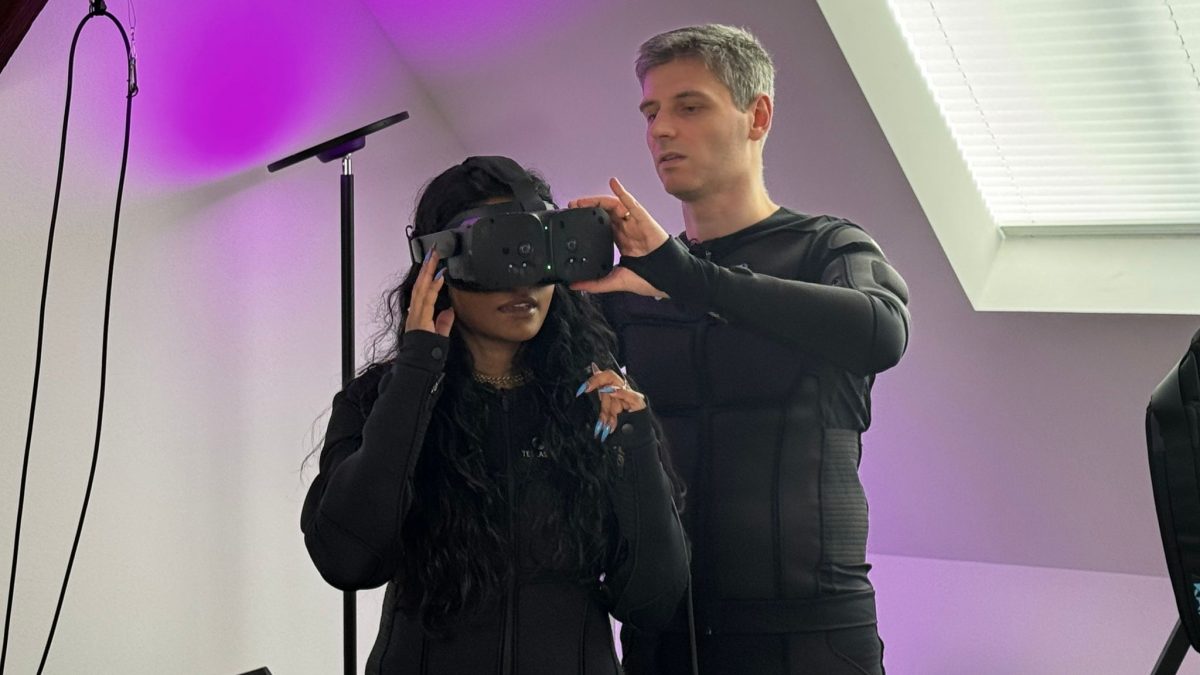In the realm of technology, a new dawn emerges, promising to bridge the chasm between the living and the departed. Enter the “live forever mode,” a virtual reality innovation spearheaded by tech entrepreneur Artur Sychov. Faced with the looming specter of losing his father to cancer, Sychov grappled with the anguish of impending separation. Driven by an insatiable desire to reconnect with his father posthumously, Sychov delved into the realm of artificial intelligence to conceive a groundbreaking solution.
The brainchild of Sychov, the “live forever mode,” manifests as digital avatars meticulously crafted to mirror the essence of their real-life counterparts. Through a mere 30 minutes of observation, these avatars adeptly replicate the voice, mannerisms, and gestures of the individuals they emulate. Sychov’s vision extends beyond mere replication; he envisions these avatars as timeless conduits, immortalizing the essence of their creators for posterity. With unwavering determination, he endeavors to render these digital doppelgangers as indistinguishable from their human counterparts.
For Sychov, the allure of this technology knows no bounds. “You can get to know the person,” he affirms, emphasizing the profound emotional connection facilitated by these digital entities. The prospect of conversing with departed loved ones, reminiscing about shared experiences, and preserving their essence for future generations elicits profound sentiment. Sychov remains resolute in his conviction that this innovation heralds a paradigm shift in our relationship with mortality.
Nevertheless, amidst the allure of this technological marvel, concerns linger. Elaine Kasket, a cyber psychologist, warns against exploiting existential fears for commercial gain. The prospect of manipulating profound anxieties surrounding mortality raises ethical dilemmas, challenging the ethical fabric of such endeavors. As Sychov’s company, Somnium Space, conducts trials for the “live forever mode,” in Prague, Czech Republic, scrutiny mounts regarding the ethical implications of this innovation.

Somnium Space, a 3D metaverse platform, serves as the canvas for Sychov’s ambitious project. Users traverse this digital expanse, assuming the guise of avatars, engaging in a myriad of activities ranging from gaming to artistic expression. The platform, boasting over 300,000 downloads since its inception in 2017, represents a burgeoning frontier in virtual interaction. Sychov himself partakes in this digital domain, his avatar—an azure-hued robot—serving as a testament to his vision.
Venturing into this digital realm, users encounter a spectrum of emotions, ranging from solace to exhilaration. UltraLord, a denizen of Budapest, Hungary, espouses the notion of digital immortality with fervor. “We all want to live forever in the things that we do,” he muses, contemplating the transcendence of the self through digital replication. The prospect of bestowing a tangible legacy upon future generations imbues him with a sense of purpose, assuaging the fear of oblivion.
Yet, amidst the allure of perpetual existence, apprehensions loom large. The prospect of relinquishing control over one’s digital doppelganger raises ethical quandaries, underscoring the need for stringent safeguards. Concerns regarding data privacy and posthumous exploitation permeate discourse, prompting introspection regarding the ethical ramifications of digital immortality.
As the “live forever mode” nears its official launch, unresolved questions persist. The intricacies of subscription fees and posthumous management cast a pall over the horizon, underscoring the need for comprehensive frameworks. In the absence of regulatory oversight, the fate of digital legacies remains uncertain, navigating uncharted waters fraught with ethical peril.

In this brave new world, technology blurs the boundaries between life and death, offering solace to those grappling with loss. Yet, amidst the promise of eternal remembrance, ethical dilemmas abound, challenging the very essence of our humanity. As we traverse this uncharted frontier, we must tread cautiously, mindful of the profound implications of our digital legacies. For in the realm of the departed, the echoes of our digital selves reverberate for eternity, shaping the contours of our collective consciousness.








